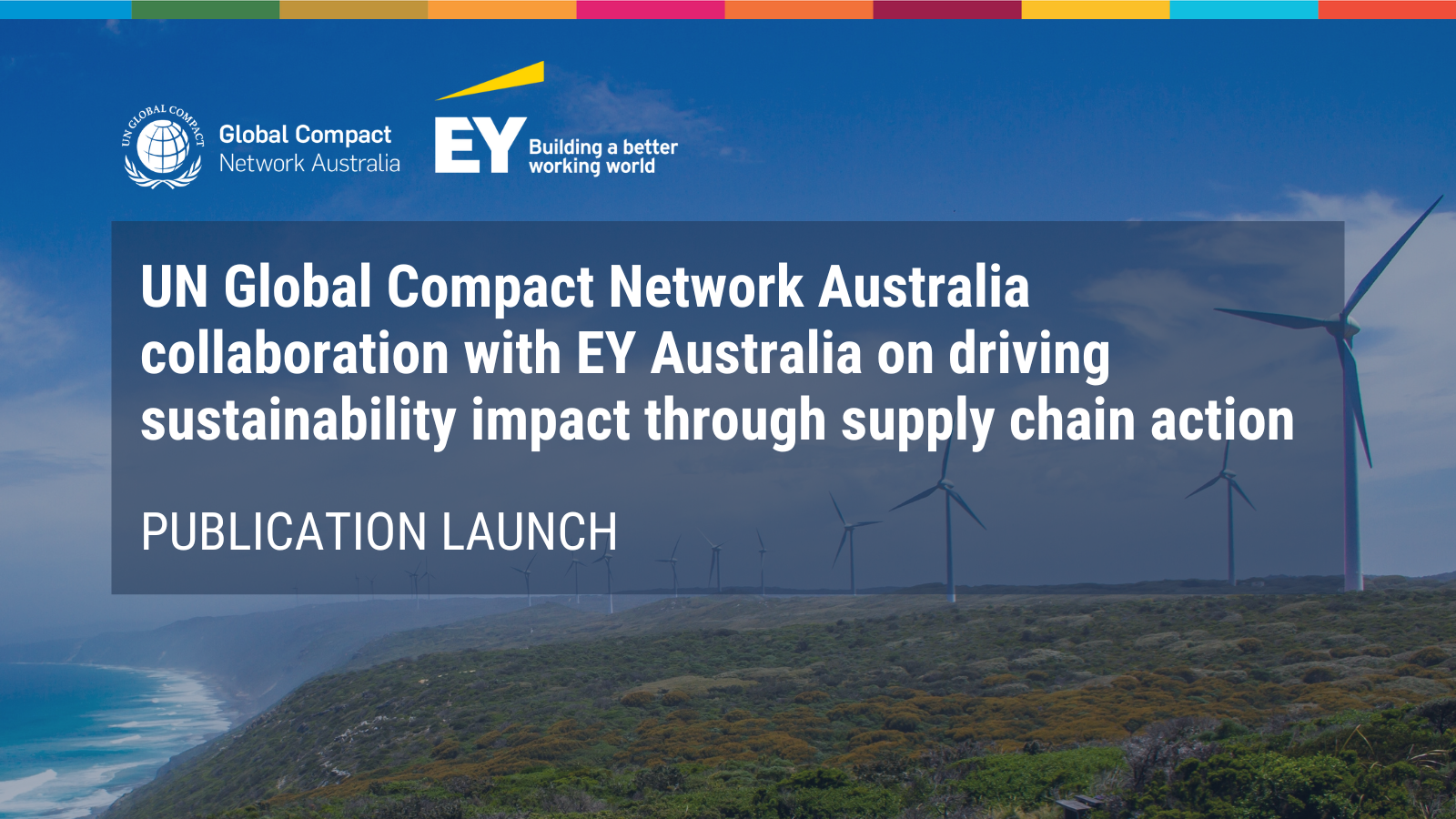
Environment & Climate Change, Featured, News, Resources
PUBLICATION | The sustainable supply chain ambition: Driving sustainability impact through supply chain action
Dr Evan Center | August 24, 2023
UN Global Compact Network Australia (UNGCNA) and EY Australia are pleased to announce the release of our new publication: The sustainable supply chain ambition – driving sustainability impact through supply chain action.
Although the interconnected and global nature of supply chains can create efficiencies for businesses, it can also create environmental and social challenges. With a lack of transparency, many businesses unwittingly participate in activities that increase emissions, contribute to biodiversity loss, and create opportunities for modern slavery to persist.
Through an exploration of the supply chain management practices of Australian businesses, this publication provides key insights into the reduction of labour exploitation and environmental degradation.
With five key themes for sustainable supply chain management, this report shines a light on opportunities for social equity, environmental restoration, and nature regeneration.
Here are five key takeaways for business, drawn from the five themes of the publication.
Five key takeaways for business
1. Moving from risk management to value creation
For businesses that have adequately mitigated risks posed to people and to the environment through their supply chain, there is an opportunity to go ‘beyond compliance’ and create positive value through their procurement decisions. Businesses we spoke to had collaborated with supply chain partners in order to toward further human rights and climate change related goals.
2. Creating visibility in supply chains using systems and data
To identify risks and value creation opportunities, businesses must have visibility into the scale of their global supply chain networks. The use of technology platforms and spend data to map supply chain networks allows businesses to better identify the full scope of their impacts.
3. Partnering with stakeholders
Businesses that collaborate with internal and external stakeholders – such as suppliers, customers, employees, industry bodies – create positive sustainability outcomes.
4. Demonstrating leadership and accountability
Businesses that make genuine progress toward sustainability goals showed strong support and allocation of resources from top-level management. Genuine executive commitment is key to driving sustainability and supply chain management efforts. It positively influences systems, governance structures, capabilities, resources and financial investment.
5. Navigating a complex and changing reporting and regulatory landscape
The increasing implementation of global reporting frameworks, alongside jurisdictional legislation, reflects an increased need to align with leading international frameworks, such as the Science Based Targets initiative (SBTi), which is supported by the UN Global Compact. This necessitates improvements in due diligence, impact management and disclosure practices. Some businesses are proactively integrating these changes into their supply chain management and monitoring. Instead of creating positive value, reactive engagement with regulatory changes can place significant pressure on the sustainability reporting function and lead to potential unintended consequences, such as the setting of unrealistic targets or adoption of the wrong reporting framework.
Ultimately, effective supply chain management can improve social and environmental outcomes. By managing the entire value chain, from suppliers to customers, businesses can integrate sustainability practices at every stage – ensuring a positive impact throughout the process.
Download the publication here:
- UN Global Compact Network Australia (UNGCNA) and EY Australia – The sustainable supply chain ambition – driving sustainability impact through supply chain action



